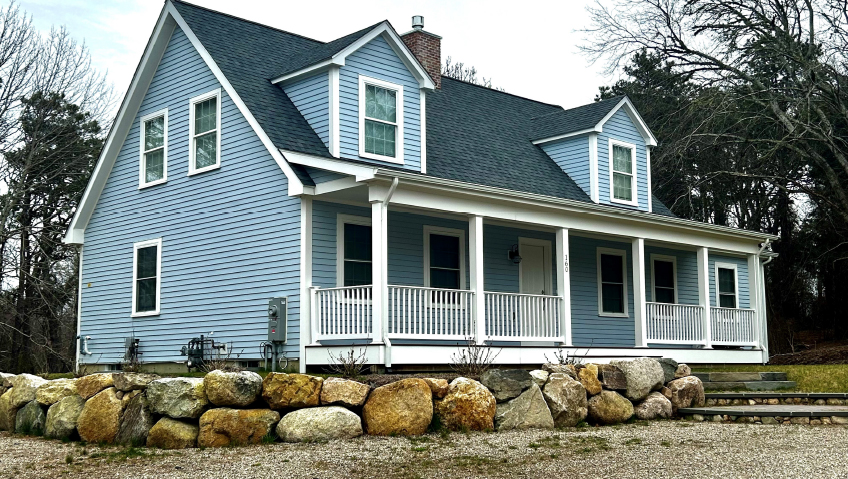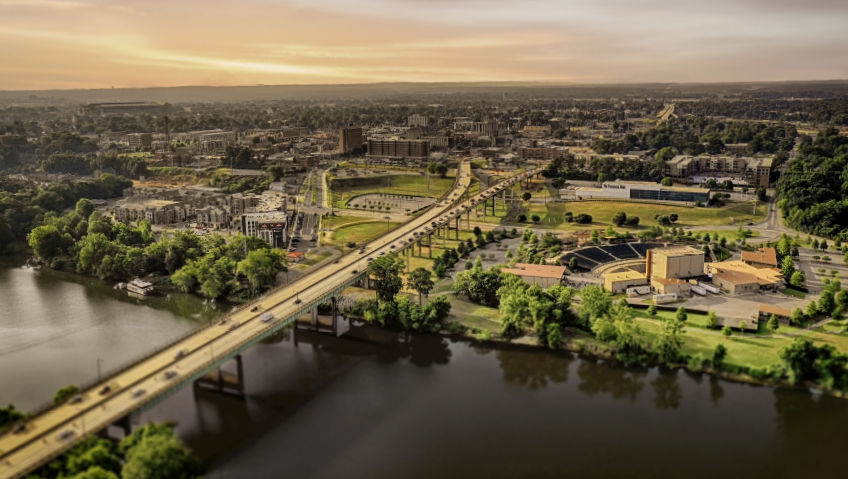Avalon Building Systems is making construction affordable again. Headquartered in Canton, Massachusetts with two factories in the Northeast, the company specializes in designing, fabricating, and assembling some of the most magnificent modular homes. Because it is located in a region where labor is affordable, its buildings come to market at a reasonable price compared to prices in many other places across the U.S.
From public buildings to mansions, townhouses, and apartments, there is almost nothing the company cannot build in this way. Avalon is even building hotels for some of the biggest international names in the hospitality industry. To date, it has erected nearly 2,000 durable buildings along the East Coast since its inception in 1999.
Despite Avalon’s longevity, there is still confusion about what modular homes are. In the United States, it is common for people to mistake manufactured and hybrid modular homes for genuine modular homes. While both types of structures are prefabricated in factories, a truly modular building comprises a collection of wood-framed cubes, or modules, expertly engineered and fitted together to render beautiful, custom homes and even multi-story buildings up to five floors high, all while adhering to high-quality building standards. None of these attributes are a given when it comes to manufactured homes.
Avalon Building Systems’ structures are so well-designed and fabricated that it is easy to confuse them with site-built ones. That is, of course, in contrast with manufactured homes which are traditionally one-story high. And since the building codes in the area are of such a high standard, the company’s modular construction automatically complies with most Leadership in Energy and Environmental Design (LEED) specifications. Beyond relying on its own expertise, the company partners with longstanding suppliers throughout the Northeast.
At times, it also happens that the team gets called in to do renovations on existing, traditional buildings. In many cases, President Paul Oliveira points out, the renovation cost is so high that, while still following strict local building regulations and code, demolishing and replacing them with modular homes often results in lower or similar expenditure for a brand-new home.
“Every home is engineered and stamped to meet local and national codes—which is not required in site-built construction,” he says.
As part of complying with energy efficiency ratings, Avalon’s modular buildings are as tightly sealed as well-built traditional buildings. Naturally, that means adding thorough ventilation to meet health and safety codes. “Our buildings are probably tighter than most,” he continues.
Many of Avalon’s clients are in highly urbanized areas like New Jersey, Boston, and New York, where labor costs are higher to match the cost of living but benefit from the company’s strategic, more rural factory locations. Since this allows for a considerable reduction in construction costs, it is also ideal for affordable housing.
Beyond the financial, environmental, and speed advantages, modular construction is far less disruptive to communities. Sites are becoming trickier to navigate in urban areas, so without the months of noisy construction and hardly any additional traffic, modular construction is a godsend. Adding to this is the added gain of incorporating recycled materials into modular construction.
After a quarter century of the exciting possibilities of modular buildings, the market is now increasingly accepting of this modern, more environmentally friendly building method—but this was not always the case. Oliveira saw the writing on the wall with regard to traditional construction—and the accompanying labor and cost challenges—more than two and a half decades ago. As an engineer, he decided to take matters into his own hands by building a company that is not just future-proof but also progressive in its methods.
Now, as fewer young people train in traditional trades, factory fabrication makes more sense every day. To Oliveira, modular buildings are superior in every way. “We can build anything,” he says. Modular buildings, he says, are superior “in terms of construction, efficiency, speed and timing.” With taller buildings, like hotels, featuring parking garages beneath and topped with as many as five stories, load bearing is typically solved by fortifying the base structure or podium with steel and/or concrete. That is then loaded with room boxes stacked on top of one another. As with the company’s homes, these buildings are completed in record time, with a standard hotel assembled in one week on average.
The value Avalon offers speaks for itself. Through high-volume bulk purchasing and fabrication by expert hands in a controlled environment according to strict specifications and quality control, these buildings stand head and shoulders above traditional wood and concrete construction, particularly in the current economic and environmental climate, Oliveira believes. “All the inefficiencies of site-built construction are gone. Many people think [modular] is very limited when, in fact, it is very expansive,” he continues.
Avalon Building Systems not only specializes in fabricating modular buildings; the team also uses modular foundations made of purpose-specific, pressure-treated lumber combined with concrete panels. These usually take only a day to place with a crane, further improving lead times. Furthermore, the company ensures that its equipment stays current, and this includes the software it uses to provide customers with a range of drawings and visualizations of future buildings. “Once people see the manufacturing process, they understand the quality of the product,” Oliveira says.
Growth in the industry continues to be driven mainly by cost considerations and striving for shorter lead times, and because of this, the company’s clientele and the size of its projects are also growing. This benefits Avalon, as doing business is not about hard selling as much as sharing information with prospective buyers. In essence, the selling is done by the product itself.
Acquiring one of these homes from the company is a process that is made exceedingly simple. Instead of selling clients an ideal, the team works to discover what people need. Initial meetings where exact customer needs and budgets are mapped are followed by preliminary designs, and once the client is happy, the engineering process starts. A professional engineer signs off on the plans and the building phase starts, with an approximate 10-week fabrication lead time.
The best part is that delivery day means these homes are complete with utilities, cabinetry, and absolutely everything they need to function as a home. “There’s nothing more amazing than having a family walk into a brand-new home. We have had people cry from happiness,” Oliveira shares.
Another great joy is, of course, the speed at which labor progresses. Clients may leave the building site with nothing but a memory of the foundations, only to return to an entire building welcoming them a day later.
As a result of its many happy customers and suppliers, Avalon has been honored with a number of industry awards. But the business would be nothing without its team of diligent, hardworking people. Following the firm’s established ethos of honesty and a clear work ethic, its staff members are all here because they excel at what they do. Priding itself on doing good, honest work has meant a lot of repeat business and word-of-mouth recommendations as satisfied customers refer friends and family to Avalon Building Systems.
The team takes customers’ needs to heart, with expedited service for disaster survivors being one way in which it gives back to the community. One case in point was when Avalon completed and delivered 30 homes to replace residences after Hurricane Sandy, the Category 3 Atlantic hurricane that cost New York and New Jersey over $69 billion in damage. Oliveira feels strongly about supporting disaster victims. “We’re happy to help people. They should come to us when there’s an issue like fire or some type of catastrophe; we will take proper care of them. We won’t take advantage of them,” he says.
Increasing numbers of developers are turning to Avalon Building Systems for solutions in the wake of rising subcontractor costs and the labor crisis, so there is an even more promising expansion on the horizon for this visionary firm. As its projects grow in size, the company continues to refine its systems and improve its processes, all to meet and exceed its customers’ needs.






